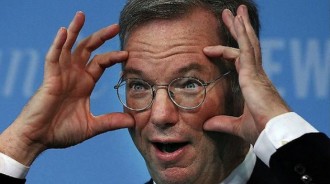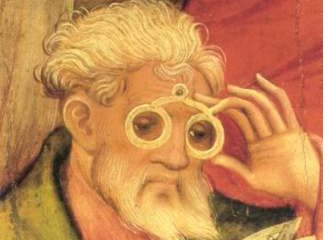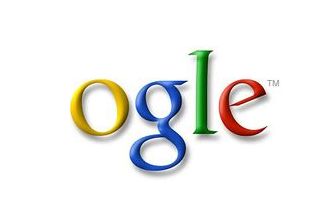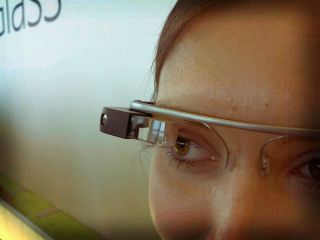 After an ignominious end to the much hyped Google Glasses, it appears the company hasn’t abandoned the whole effort.
After an ignominious end to the much hyped Google Glasses, it appears the company hasn’t abandoned the whole effort.
 After an ignominious end to the much hyped Google Glasses, it appears the company hasn’t abandoned the whole effort.
After an ignominious end to the much hyped Google Glasses, it appears the company hasn’t abandoned the whole effort.
 UK megagrocer Tesco said it has developed an application that lets the few people with Google Glasses shop until they drop.
UK megagrocer Tesco said it has developed an application that lets the few people with Google Glasses shop until they drop.
 It looks as though Google Glass will have a fresh leash of life after it has emerged Intel is to get involved in the project.
It looks as though Google Glass will have a fresh leash of life after it has emerged Intel is to get involved in the project.
Reports recently suggested that Glass was on its last gasp, with several employees leaving Google to spend more time with their families.
But, according to a report in the Wall Street Journal, Intel is going to take an active role in future development of the spectacles.
Firstly, a Texas Instrument chip will disappear from the frame to be replaced with an Intel device based on its Quark X86 technology.
And Intel, which is now a firm believer in the concept of electronic “wearables”, will do some selling and promotion of Google Glass to manufacturers, the healthcare industry and other vertical sectors, said the Journal.
The report said the next version of Glass will have a better battery life and probably more memory.
Intel has had a chequered career in any products outside its core X86 PC business, and was very late to the game in the mobile and tablet markets.
 A cunning plan by Google to let us snoop on each other and record it on the internet now appears to be an idea without legs.
A cunning plan by Google to let us snoop on each other and record it on the internet now appears to be an idea without legs.
Information on the superinformation highway – that is to say from Vanity Fair and Reuters suggests that Google co-founder Sergey Brin is tired of the idea.
Reuters reports that the beta version of Google Glass, which will set you back a cool $1,500, has lost interest not only from end users but from developers too – a sure kiss of death for any bit of hardware you may care to name.
Further, there appears to be ennui in the Google Plex, with Reuters further reporting that a number of employees dedicated to the x-ray specs have quit the coop for pastures new.
Further a consortium which appeared to be hoping to finance the Glass “egosystem” – as computer execs call the cloud of vultures that circle round a possible bright new shiny bit of tech bling, appears to have shuffled off its mortal case.
And Vanity Fair? It has a different take on the whole Google Glass phenomenon and that involves love….
 TSMC CEO Morris Chang was one of the first industry leaders to truly recognise the potential of smart devices and unlike many tech execs, he runs a very tight ship, with an emphasis on good working conditions. Small wonder, then, that TSMC often ranks as one of the top employers in Taiwan.
TSMC CEO Morris Chang was one of the first industry leaders to truly recognise the potential of smart devices and unlike many tech execs, he runs a very tight ship, with an emphasis on good working conditions. Small wonder, then, that TSMC often ranks as one of the top employers in Taiwan.
Now that his smartphone optimism has been vindicated and then some, he is starting to talk up wearable gear. In a recent interview we admitted that he doesn’t wear a smart watch or Google Glass, but he still thinks they are the next big thing, Forbes reports.
“When you wear the Glass, you look like a man from Mars,” he said. However, over the next decade things might change. “I don’t think they are very practical yet, now, but the idea is being very actively worked on, so in 10 years we will certainly have practical wearables.”
Needless to say, a potential wearable tech boom would be a boon for TSMC. The foundry already supplies about 70 percent of the world’s application processors. Smart watches and Google Glass like devices would need bespoke chips. They can’t really use off the shelf SoC designs because they need something a bit more frugal, and this is where TSMC hopes to step in.
Chang believes that “a lot more things” will be mobile ten years from now and nobody is disputing the allure of wearable tech. However, at this early stage few consumers will be willing to spend a lot on what are essentially immature products with limited functionality. It is up to big vendors to get more developers on board and make cheap wearable gear a reality – a process that will take years, but in a decade or so we could see plenty more Martians on the street.